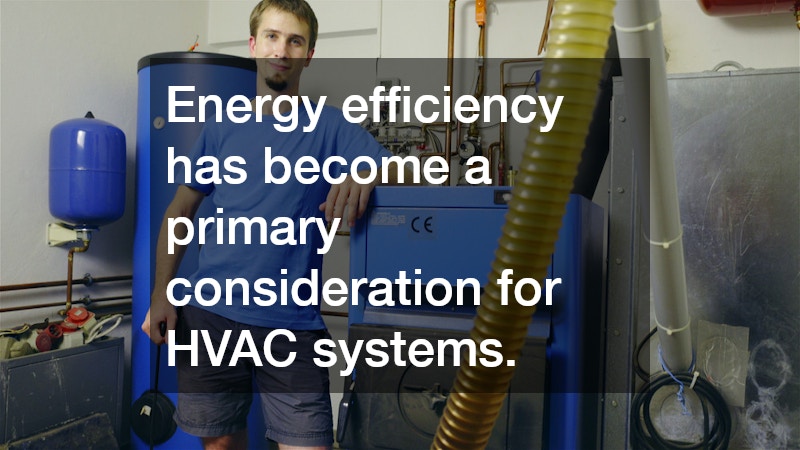HVAC stands for heating, ventilation, and air conditioning. It refers to the various systems used for moving air between indoor and outdoor areas, along with heating and cooling both residential and commercial buildings. The primary goal of HVAC is to create a comfortable and safe indoor environment. These systems filter and clean indoor air, ensuring optimal temperature and humidity levels which contribute to improved health and comfort.
As a versatile solution, HVAC plays a crucial role in maintaining modern living standards.
The complexity of HVAC systems requires understanding their components and how they work together. Central to the HVAC system are its three main functions: heating, ventilation, and air conditioning. Each of these components plays an integral role in climate control and contributes to maintaining a healthy and comfortable environment. HVAC systems vary widely in terms of size, capacity, and efficiency, ranging from simple window units in small spaces to intricate networks in large commercial complexes. Knowing the basic components and operations of HVAC systems can help homeowners and business owners make informed decisions about installation and maintenance.
Increasingly, energy efficiency has become a primary consideration for HVAC systems. With rising energy costs and environmental concerns, modern HVAC systems are designed to be efficient, reducing waste and energy consumption. Energy-efficient systems not only contribute to environmental conservation but also result in significant cost savings for users. Thus, understanding and selecting energy-efficient HVAC options is essential for those looking to reduce their utility bills and environmental footprint. The evolution of HVAC technology continues to emphasize sustainability and innovation to meet consumers’ growing demands.
Key Components of HVAC Systems
An HVAC system consists of several key components, each serving a specific function in heating, cooling, or ventilating a space. The first crucial component is the furnace, which is responsible for heating the air. Powered by electricity, gas, or oil, the furnace heats the air that is then distributed throughout the building via ducts. The efficiency and performance of the furnace are critical, impacting both energy consumption and the overall comfort of the indoor environment. Maintenance of the furnace is essential to ensure consistent and effective heating.
The second essential component is the air conditioner, designed to cool the indoor air. An air conditioner removes heat from the building and replaces it with cooler air. The system employs evaporative cooling techniques to absorb excess heat and release it outside, thus lowering the temperature inside. This process involves a series of mechanical and chemical operations, including refrigeration cycles, that demand precise calibration and regular maintenance. As with heating components, the efficiency of air conditioning units is crucial for energy savings and climate control.
Ventilation is the third key element in an HVAC system. Proper ventilation helps to circulate fresh air from outside into the building, maintaining air quality by removing pollutants and moisture. This aspect of the HVAC system plays a significant role in health and comfort, as well-ventilated spaces reduce the risk of indoor air pollution and associated health issues. Systems for ventilation can range from simple exhaust setups to advanced energy recovery systems. Regular checks and balancing of the ventilation system ensure optimal air exchange and contribute to indoor air quality.
The Importance of Regular HVAC Maintenance
Regular maintenance of HVAC systems is crucial to ensure their longevity and efficiency. Routine checks and servicing can prevent mechanical failures and extend the life of individual components. Scheduled maintenance activities typically include inspecting and cleaning filters, ducts, and coils, as well as checking refrigerant levels and electrical connections. Consistent maintenance not only enhances system performance but also aids in identifying potential issues early, reducing the need for costly, emergency repairs. A well-maintained HVAC system is more reliable, offering consistent comfort and saving users money over time.
Seasonal changes prompt different operational demands on HVAC systems, making tune-ups critical at specific times of the year. For instance, servicing the heating system before the onset of winter ensures the system operates efficiently during colder months. Similarly, preparing the air conditioning unit for summer months enhances cooling efficiency and effectiveness. Ignoring regular maintenance increases the likelihood of breakdowns during peak usage times, resulting in inconvenience and discomfort. Scheduled maintenance before seasonal transitions can make a considerable impact on performance and cost management.
Furthermore, maintaining an HVAC system contributes to improved indoor air quality. A neglected system can lead to the accumulation of dust, mold, and allergens, adversely affecting health and comfort. By regularly replacing filters and ensuring proper ventilation, systems can efficiently filter pollutants and maintain a clean air supply. Good indoor air quality is vital for the well-being of occupants, particularly those with allergies or respiratory conditions. HVAC maintenance is a crucial investment in ensuring a safe and comfortable indoor environment for everyone.
HVAC systems are integral to modern living, providing essential climate control and air quality management. Understanding the key components, routine maintenance, and energy efficiency measures can significantly enhance the performance and longevity of these systems. By prioritizing regular maintenance, users can improve system reliability, efficiency, and indoor air quality. As technology advances, the options for energy-efficient and sustainable HVAC systems continue to grow. Being informed about these systems empowers users to make better decisions for their environment and comfort.
The future of HVAC technology promises exciting developments in energy efficiency and smart home integration, offering enhanced convenience and control. Whether for residential or commercial spaces, investing in the right HVAC system tailored to specific needs is crucial for optimal performance. Embracing advancements in HVAC technology ensures ongoing improvements in both economic and environmental terms. Understanding and managing HVAC systems not only improves quality of life but also represents a commitment to a sustainable future. Ultimately, HVAC is more than just heating and cooling; it’s about creating an environment that supports well-being and living standards.



